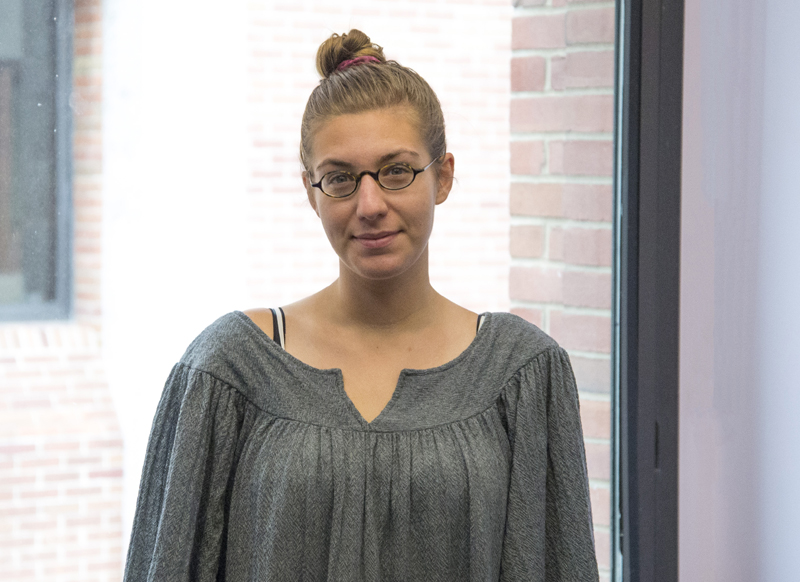Harpur student spotlight: Savoy Curry
Medieval studies and history double major looks at femininity over time

Savoy Curry was raised by a gender studies professor and a medieval literature enthusiast. Today, she studies both — but in her own way.
“I pulled the medieval from my dad and gender studies from my mom and put them together to study gender throughout medieval history,” Curry said.
Curry is a senior at Binghamton University double majoring in history and medieval studies. She also works closely with the Department of Judaic Studies through her research projects.
As a freshman, Curry chose history as a major with the intention of going to law school. She declared a double major after taking Women and Fame in Medieval Europe with Associate Professor Elizabeth Casteen in fall 2016.
The medieval studies major at Binghamton is interdisciplinary, which complements her history major. Medieval major requirements include upper-level language classes, classical studies classes and a Latin or Greek class. By taking classes from different departments, the students have a diverse, more holistic view of the world when studying the short time period of medieval studies.
Medieval studies also gave Curry the opportunity to study topics in history that she wanted to focus on more thoroughly. The time period she examines is from 500 through 1500 AD with a focus on religious women and how femininity is portrayed in their everyday lives.
“Feminism in Christian theology is actually common in the medieval time period, specifically in the 12th century,” Curry said. “The Jewish Women’s Archive has a source that includes everything written about the feminine divine in Jewish theology, which is something I haven’t really been able to study it yet, but I hope to!”
Curry is writing her honors thesis for her medieval studies major, focusing on desire as a form of agency in the writings of women between the 12th and 14th centuries.
“We look at women who are exceptional in history and what we usually mean by that is they were more masculine. When a woman could read or write it’s something that women typically couldn’t do — only men. So that’s what makes her special,” Curry said. “I am trying to look at the parts of their letters that are unexceptionally feminine, so something that is more representative of what everyday women were feeling.”
Inspiration for research in both majors however, comes from Curry’s Jewish faith — which her parents instilled in her from a young age.
As a Jewish woman, Curry wanted to get more involved in her faith through history. In summer 2018, she took a prestigious internship at The Jewish Women’s Archive in Boston, where she would listen to interviews of Jewish women in modern history. She would then transcribe quotes from the women that will eventually be displayed in an online exhibit.
“The purpose of the online exhibit will be to make the archive more accessible, which is really important because not everyone can travel to Boston,” Curry said. “It’s hard to access the academic world if we don’t make things like archives more accessible.”
When Curry isn’t digging into the past, she is running forward with Binghamton’s women’s cross country and track and field teams. She also sits on the Student-athlete Advisory Committee.
Curry, currently in the process of applying to graduate schools, with plans to get her doctorate in medieval history with intentions of teaching at the collegiate level.
As she wraps up her time at Binghamton University and looks into the future, Curry said she will miss living in the historic city of Binghamton and her old Victorian house, where she gets to embrace her love for history every time she walks out her front door.
“The city itself is growing, but at the same time it’s still such an old city,” Curry said. “It has so much character and all these beautiful old Victorian houses. It’s been cool seeing how the relationship between the University and the town has grown.”
